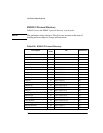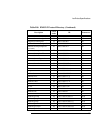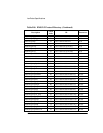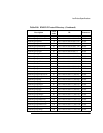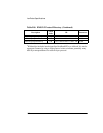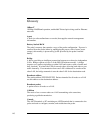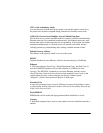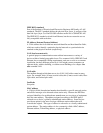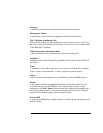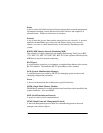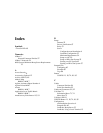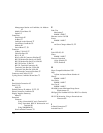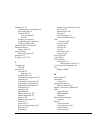
112
IEEE 802.3 standard
Part of the Institute of Electrical and Electronics Engineers 802 family of LAN
standards. The 802.3 standard defines the physical layer (layer 1) and part of the
data link layer (layer 2) of the ISO OSI reference model for a CSMA/CD LAN.
The IEEE 802.3 standard evolved from Ethernet, but the two networks are not
fully compatible with each other.
IP Address (Internet Protocol Address)
A 32-bit address that is divided into network-identifier and host-identifier fields,
which are used to identify a particular physical network or a particular device
attached to that physical network (respectively).
LAN (local area network)
A general-purpose communications network that interconnects a variety of
devices within a limited geographical area. Two common LANs, IEEE 802.3 and
Ethernet, have compatible cabling requirements, and can co-exist on a common
installation, but have different protocols.A LAN might connect computers on
adjacent desks, within a building, or within several buildings of a campus. See
also extended LAN.
LAN cable
The medium through which data moves in a LAN. LAN cables come in many
types. For example, thick (10 mm) coaxial cable, thin (5 mm) coaxial cable, fiber-
optic cable, and twisted-pair cable.
LanProbe
See probe.
MAC address
A 12-digit (48 bit) hexadecimal number that identifies a specific network station
and allows messages to be directed to that station only. Because the IEEE has
assigned identifiers for each hardware manufacturer, no two pieces of equipment
have the same address. The address assigned according to the IEEE plan is
referred to as a device’s globally-administered station address. Some devices
provide an option for the user to assign a different station address that will
override the original. This type of address is referred to as a locally-administered
station address. The station address is also commonly called a MAC address,
Ethernet address, Token-Ring address, or physical address.



